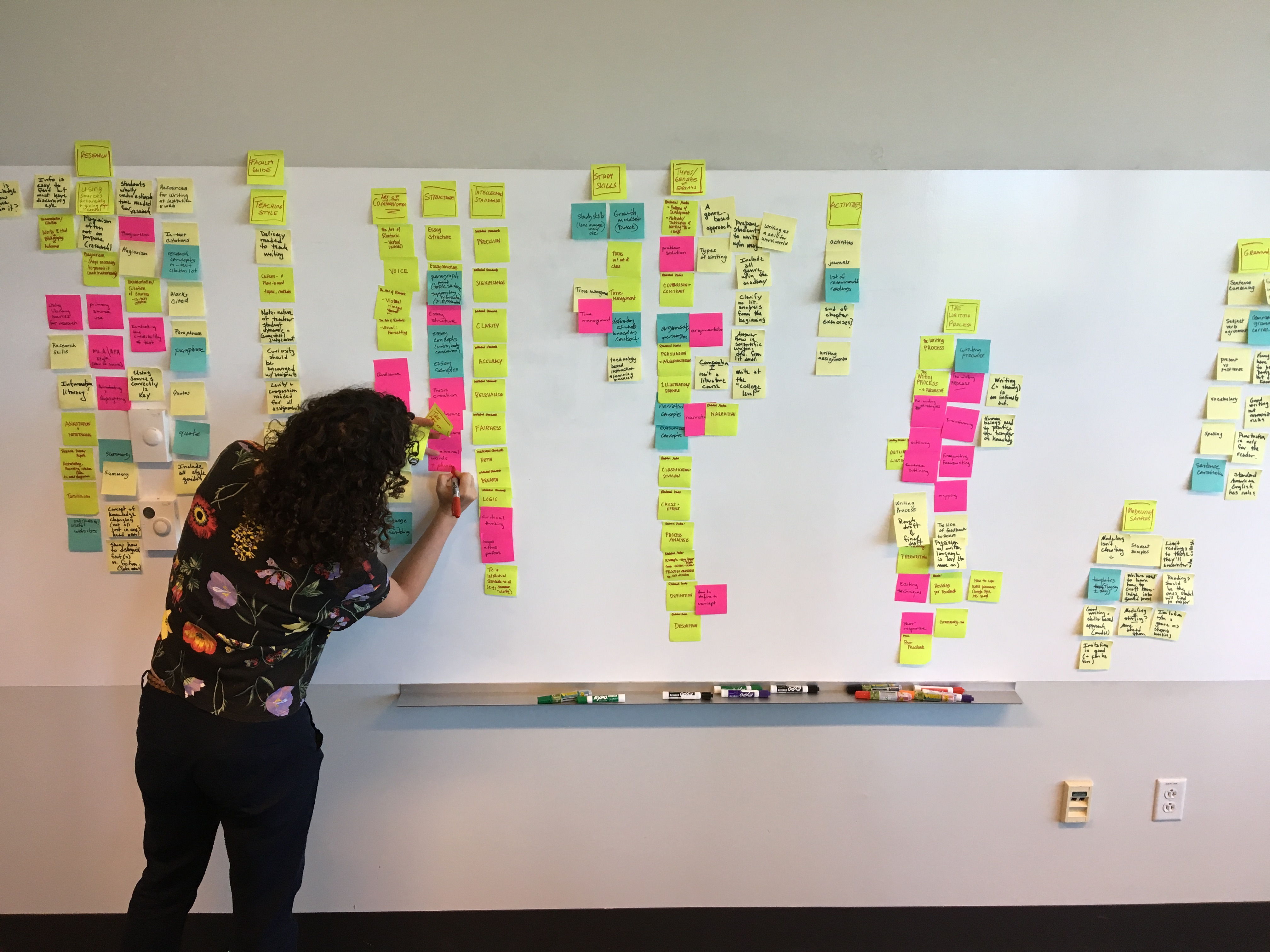With the semester getting into full swing, we are proud to share the outputs of the OER sprints conducted in May of this year. During two sprint events, faculty and instructors from throughout the University of Hawaii system focused their energy and expertise to produce two OERs.
Likened to a coding hackathon, book sprints involve rapid planning, writing, revising, and more writing. Book Sprints champions the notion of going “zero to book in five days” but due to time constraints, three-day sprints were planned and focused on content for English 100 and Economic 131 (Microeconomics). Our teams gathered at the Information Technology Center (ITC) at UH Manoa to take part in this experimental approach to curriculum development, spending 11-to-12-hour days giving their all to the project. From roughly 9:00am to 9:00pm, these subject matter experts sought out existing content, drafted entire chapters from scratch, and edited each others’ work.

The first sprint team members had already adopted the widely-used Openstax Principles of Microeconomics in their courses, which provided an excellent base of content. As many instructors do in the classroom, each instructor brought with them extensive notes about how they might change or augment the curriculum if given the opportunity. While it can be a slow process to make substantive changes to a textbook over a semester, the sprint offered the chance to make changes immediately and receive expert feedback from others who work with the same content, resulting in a book that better supports the needs of the instructors. Changes from the off-the-shelf Openstax version to the UH version include a Use of Mathematics appendix as part of the first chapter, the combining of multiple chapters and updates to examples, tables, and data throughout.
After major combinations or eliminations of chapters and sections were decided, a checklist of tasks was established for each chapter and work was divided among the participants. For the Microeconomics book, each of the seventeen chapters went through phases of text revision, figure/table updating, checking links to external content, knowledge check revision, alignment with learning objectives, and final in-house copyediting. Each night while the subject matter experts rested, Book Sprints staff in South Africa and Germany copyedited the day’s work and made suggestions to align the content with a style guide established at the beginning of the sprint. This process repeated for each of the chapters, and each day the group began by reviewing the copyediting notes and making plans for the next full day of work. As a final step, figures and equations throughout the book were formatted in LaTeX.
The second sprint group focused on the creation of a writing and rhetoric guide that is commonly assigned alongside a set of readings and contemporary literature. English 100 is taken by as many as 10,000 UH students each year across all campuses, representing one of the highest enrollment courses in the entire system. Several similar OER guides in various website and course formats had been produced at the time of this sprint, but the end goal was to create a guide that would take book form.
As with many courses, the approaches and objectives for English 100 vary somewhat from campus to campus and between instructors. The Book Sprints team guided the team of subject matter experts through a process of harmonizing the variations of learning outcomes associated with sections of the course, clarifying the goals for the project. In what can be described as a semi-chaotic post-it note session, the instructors were tasked with curating all the ideas and goals for the book into buckets representing chapters. Many ideas and goals overlapped, and some were discarded if they did not fit within the scope of the book or were a better fit for an individual instructor’s edition of the book — which was promised from the beginning. Having a shared collaborative version was foundational, and the open licensing and simple cloning in Pressbooks meant that each instructor now has their own version to use with their students and continually edit during the pilot period.

As it turned out, three days of sprinting was barely enough time to yield the first draft of the text, now titled English Composition. Finishing touches on this initial version of the text were made in the weeks following the sprint, ensuring each instructor could confidently move forward with the text. The book begins with a chapter on student success, which gives helpful tips for communicating with professors and other students, and for understanding standards of quality for writing. The following chapters then explain the writing process and distinguish between types of essays that students are likely to write during their college experience. A final chapter on research skills rounds out the core content of the book, which is supplemented by appendices that recommend place-based and culture-based readings, videos and sample assignments.
Both books are now available on the UH Pressbooks site, to be viewed and used and downloaded under the terms of the CC BY license attached to it. Print on demand for both books is being finalized, which will allow students to access low-cost print copies. Overall, the sprint approach to OER development holds real value for those interested in OER but who, like many, haven’t moved to the adaptation and creation phases of OER beyond off-the-shelf adoption.
A huge thanks to Barbara and Karina from Book Sprints for their master facilitation skills, and to the eight authors across both sprints who shared their expertise and collaborative energies with us. Big thanks as well to Davilla Gose and Laura Chuang for helping make the logistics and operational side of the sprints smooth.



